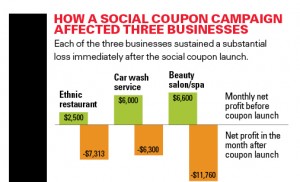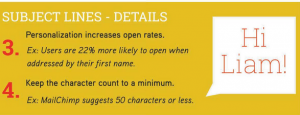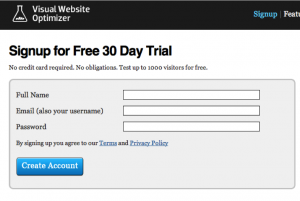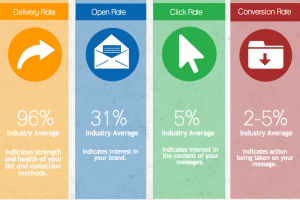This blog aims to discuss the topic of online coupon sites and identify the pros and cons for businesses using these marketing strategies. Coupon websites have become one of the fastest growing areas in online sales and one major reason for this is because People love discounts, especially during hard times when money is tight (Inc.com, 2015).
The key UK players in this industry are Groupon, LivingSocial and Wowcher. These websites claim that the majority of their customers are very young, most users aged around 18-34. The digital coupon companies segment their customers based on demographics and also their purchasing history and thus they discover where the customers’ interests lie.
In the summer of 2010, Groupon was said to be worth $1.5 billion. Months later it reportedly declined a $6 billion buyout offer from Google which represents the scale and potential for this company and industry.
Watch this impressive animation created by Groupon that attempts to reel in possible businesses for a partnership (Grouponworks.co.uk, 2015).
Coupon websites are essentially online advertising sites that use direct marketing to facilitate group-buying deals. They partner up with businesses of all types offering their product/service through an agreed discounted price to the coupon website’s followers. They develop large customer databases by collecting the name, contact details and location of each person who purchases from them (Business.qld.gov.au, 2015).
These coupon sites sometimes charge a setup fee or some other form of arrangement fee and the voucher provider normally takes around 45%-65% of the sale price as a commission (Therichardsmith.com, 2015). With this huge share of revenue being taken by these coupon companies this then proposes the question, is it profitable for businesses to form this partnership?
Below is a list outlining some of the key advantages of working with a coupon partner:
It attracts a lot of consumers.
Coupon offers are sent to thousands of subscribers, and are visible to everybody who visits a coupon website. If customers like a deal, they will often promote it through their own networks, and by posting it on other websites that feature the best coupon deals. Few small businesses could afford to achieve this mass exposure in any other way.
Each coupon advertisement includes buttons that allow users to share the ad through media such as Facebook, Twitter and email. Many sites also give incentives (e.g. credit vouchers) to customers who sign their friends up to the site (Business.qld.gov.au, 2015).
It advertises the business
Coupon sites often have a large following and being associated with these could enhance brand awareness for a company. By advertising on these channels it enables the business to be exposed to a new market that may not have been previously accessible or explored (Jones, 2011)
It helps move inventory
If a business needs to reduce stock in a short period of time coupon websites are a highly viable option. Creating and maintaining a successful digital marketing campaign can be costly and time consuming therefore working with the coupon companies can take away the hassle of this. Forming quick partnerships with these websites can be a quick way of shifting stock and making sales. Coupon partnerships are also an instant possibility if a business is experiencing a shortfall in customers, i.e. a quiet mid-week or a cancelled booking for example. If a business is experiencing a reduction in consumption then a quick coupon deal could help to reduce this operating loss.
Some negatives associated with partnering up with a coupon website have been listed below.
Deals hurt the companies finance
Reading through a report in the Journal of the Academy of Marketing Science there was a case regarding a social coupon campaign set up by three small businesses in the United States:
The article highlighted that the immediate aftermath of the coupon offer was destructive with substantial financial losses. The three businesses had difficulty retaining most of the new customers resulting in the coupon campaign being very unsuccessful (Technology, 2012). With customers being extremely price driven in this current marketplace, and also being extremely fickle, these businesses are going to have to work extremely hard in order to maintain clients over the longer term. The figure below illustrates the loss that these companies suffered.
(Source taken from Technology, 2012)
There is evidence that suggests that sites such as Groupon are not as effective for a business as they make out. Groupon’s own research once estimated a return rate of just 22% while others have estimated a number much lower. This number however can vary significantly between organisations therefore the figure that most businesses should be most concerned with is the number of returns made by full paying customers. A study by Lightspeed Research shows that 63% of Groupons are purchased by existing customers. Just 2% of buyers who returned had never purchased from the merchant prior to the Groupon. So the merchant essentially gave away 75 cents for each dollar of business from the other 98%.
Can bring about a loss of existing customers and revenues.
Given that the primary motive of launching a social coupon is to attract new customers, most businesses wouldn’t ordinarily want to encourage their existing customers to use discount coupons. Making coupons available to people currently paying full price damages profitability and encourages deal-seeking behavior.
Businesses must be careful when deciding about using social shopping sites to promote their business. It is important to understand that there are other cheaper ways of distributing coupons such as using social media and email campaigns.
References
Business.qld.gov.au, (2015). Who uses coupon websites? | Queensland Government. [online] Available at: https://www.business.qld.gov.au/business/running/marketing/online-marketing/using-coupon-websites-to-market-your-business/who-uses-coupon-websites [Accessed 20 Apr. 2015].
Grouponworks.co.uk, (2015). How Groupon Works Video – Groupon Works United Kingdom. [online] Available at: http://www.grouponworks.co.uk/blog/working-with-groupon/how-groupon-works-video/ [Accessed 3 Apr. 2015].
Inc.com, (2015). [online] Available at: http://www.inc.com/guides/201104/10-pros-cons-for-using-groupon.html [Accessed 20 Apr. 2015].
Jones, M. C. (2011). Netting maximum brand value from voucher sites. Marketing Week, 34(33), 25-28 [Accessed 20 Apr. 2015].
Technology, M. (2012). The Perils of Social Coupon Campaigns | MIT Sloan Management Review. [online] MIT Sloan Management Review. Available at: http://sloanreview.mit.edu/article/the-perils-of-social-coupon-campaigns/ [Accessed 20 Apr. 2015].
Technology, M. (2012). The Perils of Social Coupon Campaigns | MIT Sloan Management Review. [online] MIT Sloan Management Review. Available at: http://sloanreview.mit.edu/article/the-perils-of-social-coupon-campaigns/ [Accessed 20 Apr. 2015].
Therichardsmith.com, (2015). Groupon and Wowcher- Sinner or Saint for Small Business Marketing. | Small Business Advice (SBA) West Sussex. [online] Available at: http://www.therichardsmith.com/groupon-and-wowcha-sinner-or-saint-for-small-business-marketing/ [Accessed 20 Apr. 2015].



 (Wowcher.co.uk, 2015)
(Wowcher.co.uk, 2015)


 (Source: Groupon Blog UAE, 2012)
(Source: Groupon Blog UAE, 2012)









 Some ways of obtaining these are; by making customers give an email address when making a purchase, creating a competition entry which requires an address, making a user sign up to use a website, the list goes on.
Some ways of obtaining these are; by making customers give an email address when making a purchase, creating a competition entry which requires an address, making a user sign up to use a website, the list goes on. The delivery rate relates to how many of your emails are getting through to people’s inbox’s.
The delivery rate relates to how many of your emails are getting through to people’s inbox’s.